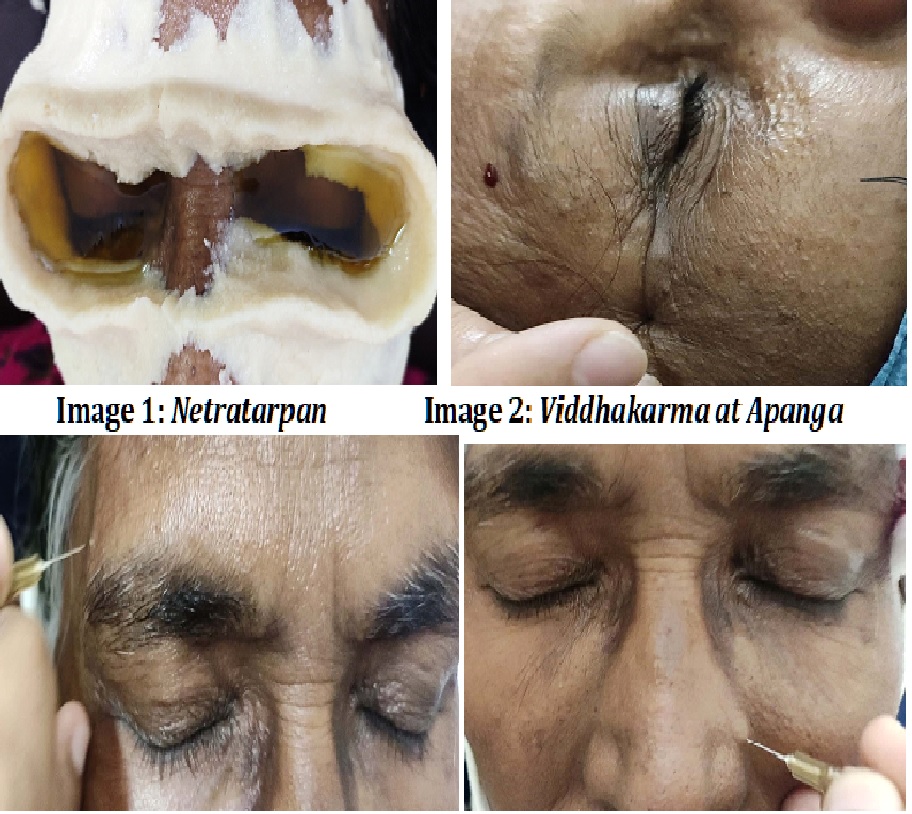Role of Viddhakarma as an Adjuvant Treatment in the Ayurveda Management of Diabetic Vitreous Haemorrhage with Special Reference to Tritiya Patalgata Doshadushtijanya Timira
DOI:
https://doi.org/10.47070/ayushdhara.v11i3.1604Keywords:
Diabetic Vitreous Hemorrhage, Dwitiya Patalagata Timira, Timira, ViddhakarmaAbstract
Vitreous hemorrhage is one of the most common reasons for sudden painless decrease in vision. Often it is caused by retinal vascular disorder secondary to common systemic ailments such as diabetes mellitus, systemic hypertension etc. The symptoms of vitreous hemorrhage can be correlated to Tritiya Patalagata Doshdustijanya Timira in Ayurveda. Asravisravan is an Ayurvedic treatment modality indicated for all types of Netra Rogas. In Timira’s Samanya Chikitsa, Asravisravan is indicated by Acharya Vagbhata. Suchi is one of the Shastras that can be used for Raktavisravan. Usage of 26 number needle will facilitate the controlled Raktavisravan. This method of puncturing with needle is called as Viddhakarma. A diagnosed case of diabetic vitreous hemorrhage with complaints of both eyes diminished vision since one month approached to our Out Patient Department and was managed by Nasya, Netratrapan, Viddhakarma and systemic medicines. A prior written consent was obtained from the patient. Significant visual improvement was noticed after the treatment.
Downloads

Downloads
Published
Issue
Section
License
Copyright (c) 2024 AYUSHDHARA

This work is licensed under a Creative Commons Attribution-NonCommercial-ShareAlike 4.0 International License.


